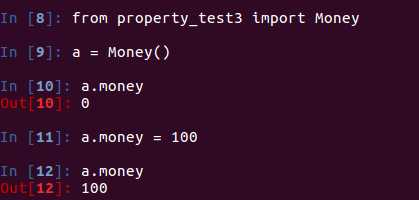私有化
xx:公有变量
- _x:单前置下划线,私有化属性或方法,from somemodule import *禁止导入,类对象和子类可以访问
- __xx:双前置下划线,避免与子类中的属性命名冲突,无法在外部直接访问(名字重整所以访问不到)
- __xx__:双前后下划线,用户名字空间的魔法对象或属性。例如__init__,不要自己发明这样的名字。
- xx_:单后置下划线,用于避免与Python关键值字冲突。
#! /usr/bin/env python3 class Person(object): def __init__(self, name, age, taste): self.name = name self._age = age self.__taste = taste def showperson(self): print(self.name) print(self._age) print(self.__taste) def dowork(self): self._work() self.__away() def _work(self): print(‘my_work‘) def __away(self): print(‘my__away‘) class Student(Person): def construction(self, name, age, taste): self.name = name self._age = age self.__taste = taste def showstudent(self): print(self.name) print(self._age) print(self.__taste) @staticmethod def testbug(): _Bug.showbug() #模块内可以访问,当from cur_module import *时,不导入 class _Bug(object): @staticmethod def showbug(): print(‘showbug‘) s1 = Student(‘jack‘, 25, ‘football‘) s1.showperson() print(‘*‘*20) #无法访问__taste,导致报错 #s1.showstudent() s1.construction(‘rose‘, 30, ‘basketball‘) s1.showperson() print(‘*‘*20) s1.showstudent() print(‘*‘*20) Student.testbug()

总结:
- 父类中属性名为__名字 的,子类不继承,子类不能访问
- 如果在子类中向 __名字 赋值,那么会在子类中定义的一个与父类相同名字的属性
- _名 的变量、函数、类在使用from xxx import *时不会被导入。
属性 property
私有属性添加getter和setter方法
#! /usr/bin/env python3 class Money(object): def __init__(self): self.__money = 0 def getMoney(self): return self.__money def setMoney(self, value): if isinstance(value, int): self.__money = value else: print(‘error:不是整型数字‘)
使用property升级getter和setter方法
#! /usr/bin/env python3 class Money(object): def __init__(self): self.__money = 0 def getMoney(self): return self.__money def setMoney(self, value): if isinstance(value, int): self.__money = value else: print(‘error:不是整型数字‘) money = property(getMoney, setMoney)

使用property 取代getter和setter方法
@property 成为属性函数,可以对属性赋值时作必要的检查,并保证代码的清晰短小,主要有两个作用
- 将方法转换为只读
- 重新实现一个属性的设置和读取方法,可做边界判定
#! /usr/bin/env python3 class Money(object): def __init__(self): self.__money = 0 @property def money(self): return self.__money @money.setter def money(self, value): if isinstance(value, int): self.__money = value else: print(‘error:不是整型数字‘)

